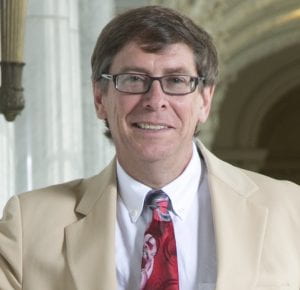 In a decision issued July 6, 2020, the U.S. Supreme Court dodged a constitutional bullet that could have thrown the 2020 presidential election into confusion. By deciding unanimously that states have authority to penalize “faithless electors” who cast a presidential vote contrary to a state’s direction, the Court allowed the presidential election process to continue as it has for over two centuries. If electors could cast their votes any way they wanted, the upcoming election would have been thrown into great confusion.
In a decision issued July 6, 2020, the U.S. Supreme Court dodged a constitutional bullet that could have thrown the 2020 presidential election into confusion. By deciding unanimously that states have authority to penalize “faithless electors” who cast a presidential vote contrary to a state’s direction, the Court allowed the presidential election process to continue as it has for over two centuries. If electors could cast their votes any way they wanted, the upcoming election would have been thrown into great confusion.
Many voters do not realize that when they cast their vote for a presidential candidate, say Biden or Trump, they are actually voting for “electors”—usually unnamed on the ballot— who will later cast the votes to select the president in the Electoral College. This indirect process was first spelled out in Article II, Section 1 of the Constitution. Then—when the second contested presidential election ever resulted in a tie of elector votes in 1800, and the House of Representatives selected Thomas Jefferson as President over Aaron Burr after 36 ballots—the 12th Amendment was adopted in 1804. This set the party-controlled Electoral College presidential election process we have today.
Article II specifies that “each State shall appoint, in such Manner as the Legislature thereof may direct,” electors in proportion to the state’s population. Today, every state expects its electors to vote for the candidate that has won the state’s popular vote (or, in two states, by congressional district). Thirty-two states have “pledge laws” that require electors to so vote. And 15 states, including Washington and Colorado (the two involved here), have laws that remove, and even penalize, an elector who votes “faithlessly,” that is, for a candidate other than the one they pledged to support.
In the surprising presidential election of 2016, a number of electors who had pledged to vote for Hillary Clinton announced that they would instead vote for a different candidate. This was a (failed) effort to persuade some Trump delegates to also vote otherwise, hoping to throw the election into the House of Representatives once again. Seven electors actually went through with their plan; in Colorado the delegate was removed and in Washington three delegates were fined $1,000 each. The Washington Supreme Court upheld the penalties; but later the Tenth Circuit (encompassing Colorado) ruled oppositely, ruling that under the Constitution, electors have “discretion” to vote as they please.
In a brisk and witty opinion, Justice Elena Kagan (joined solidly by six justices) rejected the Tenth Circuit’s ruling. States may enforce the pledges that presidential electors make and may even penalize electors who vote faithlessly. The Constitutional text, which says states shall appoint electors “in such Manner” as the State directs, gives states “far reaching authority” over electors. Kagan writes with style: “The Constitution is barebones about electors” and “nothing in the Constitution expressly prohibits” the enforcement of elector loyalty pledges. Even if some of the constitutional framers thought electors would have discretion, they “did not reduce their thoughts . . . to the printed page.”
Justice Kagan’s writing continues to embed her reputation with some as the coolest member of the current Court. She deftly includes lively popular culture references, noting that this case might be good “fodder for a new season of Veep” and that Hamilton, by supporting Jefferson in 1800, “secured his place on the Broadway stage – but possibly in the cemetery too.” (Hamilton was in fact later killed in a duel with losing candidate Burr).
In concurrence, Justice Clarence Thomas (joined by Justice Neil Gorsuch) agreed with the result, while pushing a more vague 10th Amendment theory that he advanced in dissent 25 years ago. Thus the Court unanimously determined that the 2020 presidential election will be decided by faithful electors, as elections have been since 1804. (In 234 years, only 0.8% of electors have voted faithlessly, and it has never made a difference.) Imagine the confusion that could have resulted had the Court decided the other way! While no one can predict the results of the upcoming election, and many are nervous about how it will be carried out, at least the constitutional voting scheme for electors remains, at least for now, intact.
Rory Little is the Joseph W. Cotchett Jr. Professor of Law at UC Hastings, where he has taught full-time since 1994. He clerked at the U.S. Supreme Court in 1984-85, and recently published an article remembering that term (88 G.W.U. L. Rev. Arguendo 101 (2020)). Among many external projects, he has served as an Associate Deputy Attorney General in the U.S. Department of Justice; as capital case counsel for Mr. Brandon Jones in Georgia; and as reporter to the ABA task force to revise the Criminal Justice Standards for Prosecution and Defense. He is a co-author of a Criminal law casebook and he comments regularly on criminal and constitutional law issues for national media outlets.
